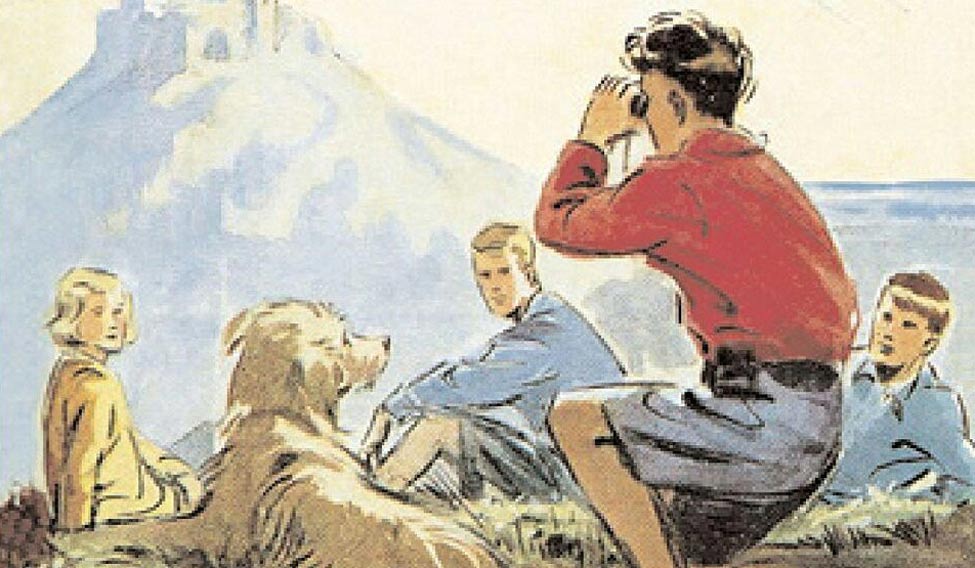As a boy growing up in 1970s Bombay, I loved Enid Blyton and hated her with equal fervour. I loved the fact that she had written so much and so there was always going to be another book by her that I could read. I loved it that her children were so independent, always going off on adventures and solving things, and looking for clues. I hated all the happy families that she presented, fathers and mothers in their rightful places, boys doing boy things and girls doing girl things.
This was perhaps why the Famous Five was such a different experience. Julian was unbelievably bland. Dick had no personality at all. Anne was so feminine she was galling. But George and Timmy? Now there were two interesting characters. George was drawn beautifully by Eileen Soper; she summed up the angstiness of children. I know it is now generally accepted practice to say that George grew up with a rejecting and distant father and so developed a strained gender identity. I know that it is amusing to consider that George might be a lesbian or even a transgender person in training. I don’t think so. I think George didn’t fit.
In all the other children’s stories, the girl who didn’t fit in is punished and straightened up. Take poor Zerelda Brass in Third Year at Malory Towers. Blyton’s xenophobia is on view here and Zerelda is unquestionably brassy: she even wears make-up, she is a fool who has to be downgraded, she is mocked and insulted until she has fallen in with the rest of the boring British girls. Take Prince Paul of Baronia; he must be rescued, his guards must later be rescued, he cannot play Snap because he cannot be made to see when the cards are the same and of course, the best way for him to be brought up to speed is for his father, the King of Baronia, to send him to a British boarding school.
Only George is allowed her différance. I do not know how Enid Blyton let this happen. Her world was an orderly world in which the high truths were British middle-class manners. Timmy, George's dog, represents all the love that the children, their parents, their friends, their society, will not allow themselves to show. I have an Irish friend who moved to London. For years, no one in her neighbourhood would talk to her until she became mother to a dog. “Now they all talk to me because I’m Ted’s mum,” she explained. A dog allows this to happen. Thus almost all the groupings of children had a dog of one kind or another.
There may be another reason George is allowed to be different. She is rich. Really rich. No mention is ever made of this but her family owns an island. The whole island. The rich play by different rules. But even if she is rich, she is still a girl. She is reminded of this by Julian again and again. He is the leader of the group. Why? Because he is a male and he is the oldest. He tells the girls what they can do and what they cannot do. Anne, whose spine is made of talcum powder, bows down. George,too, must for she will be turned out from the golden inner circle, she will not be allowed to go with them. And what use is an island if you have no one to share it with?
Every misfit knows what George goes through when she submits to Julian’s diktats for fear of ostracism. But in our heads, in the heads of every misfit—and I need hardly add here that I was one of them—another George grew, self-sufficient, needing no one other than Timmy. This was how we always saw ourselves, we misfits, but we knew also that the camera with which we saw ourselves was in the hands of another. They were looking at us, regretting their decisions to cast us out, as we walked alone and uncaring.
This is one of the greatest uses of fiction. It is the retelling of the story that we don’t think was the right one. In many versions, Scarlett does get Rhett; in my version George grows into her own, throws the other uninteresting idiot children off her island and turns it into a nature resort where birds nest and foxes slink through the undergrowth far from the unspeakable culture that will send men and horses out after them.







